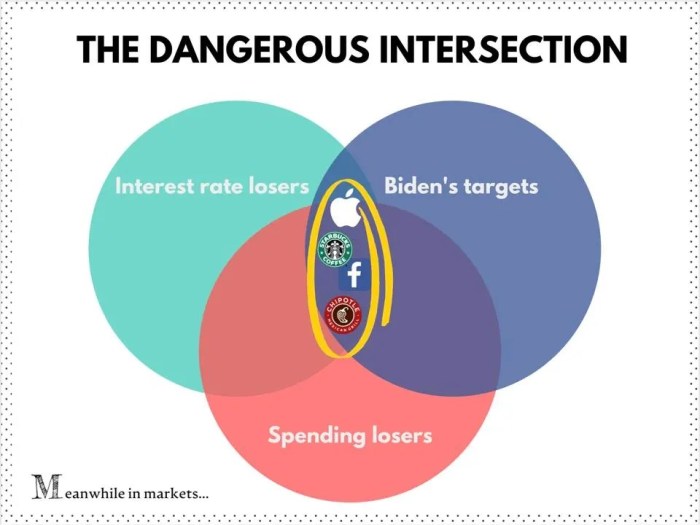No bill of rights no deal – With “no bill of rights, no deal” at the forefront, the American Revolution ignited a fierce battle for fundamental freedoms. This slogan echoed through the halls of debate, shaping the very foundation of the United States and leaving an enduring legacy on the global fight for rights and liberties.
The Bill of Rights, the first ten amendments to the Constitution, emerged as a crucial safeguard against government overreach, guaranteeing citizens essential freedoms such as speech, religion, and the right to bear arms. Without these fundamental protections, the American experiment in self-governance would have faltered.
Historical Context
The “no bill of rights, no deal” slogan emerged during the American Revolution as a rallying cry for those who believed that the new nation should have a constitution that protected individual rights. The slogan was first used by Thomas Jefferson in a letter to James Madison in 1787, in which he argued that a bill of rights was necessary to prevent the government from becoming too powerful.The
slogan gained popularity during the ratification debates over the Constitution, which was proposed by the Constitutional Convention in 1787. Anti-Federalists, who opposed the Constitution, argued that it did not adequately protect individual rights. They demanded that a bill of rights be added to the Constitution before they would support its ratification.The
Federalists, who supported the Constitution, initially resisted the demand for a bill of rights. They argued that the Constitution already contained sufficient protections for individual rights and that a bill of rights was unnecessary. However, in order to secure the ratification of the Constitution, the Federalists agreed to add a bill of rights to the document.The
Bill of Rights was adopted in 1791 and consists of the first ten amendments to the Constitution. It includes protections for freedom of speech, religion, and the press, as well as the right to bear arms and the right to a fair trial.
The Bill of Rights has been a cornerstone of American democracy for over two centuries and has helped to ensure that the government remains accountable to the people.
Key Figures
* Thomas Jefferson
- James Madison
- Alexander Hamilton
- John Adams
Events, No bill of rights no deal
* The American Revolution
- The Constitutional Convention
- The ratification debates over the Constitution
- The adoption of the Bill of Rights
Constitutional Implications
The Bill of Rights, comprising the first ten amendments to the US Constitution, holds paramount significance in the American constitutional framework. It serves as a bulwark of individual rights and liberties, placing limits on the powers of the government and safeguarding citizens against potential tyranny or infringement upon their fundamental freedoms.
The Bill of Rights guarantees an array of specific rights, including freedom of speech, religion, and the press; the right to bear arms; protection against unreasonable searches and seizures; the right to a fair trial; and the right to due process of law.
These rights are deemed fundamental to a free and democratic society, ensuring that the government does not overstep its authority and that individuals can live their lives with a reasonable expectation of liberty and security.
Potential Consequences of Not Having a Bill of Rights
The absence of a Bill of Rights would have profound implications for the American constitutional system. Without these explicit protections, the government would possess unchecked power, and individual rights would be subject to the whims of the ruling party or the prevailing political climate.
- Erosion of Civil Liberties:Without constitutional safeguards, the government could infringe upon freedom of speech, religion, and other fundamental rights without fear of legal recourse.
- Unfair Trials:The right to a fair trial, including due process and protection against self-incrimination, would be at risk, leading to potential miscarriages of justice.
- Government Overreach:The absence of a Bill of Rights would empower the government to conduct unreasonable searches and seizures, violating privacy rights and undermining the rule of law.
Political Significance

The “no bill of rights, no deal” slogan has played a significant role in political discourse, serving as a rallying cry for those who advocate for the protection of individual rights and freedoms.
The slogan has been used by political parties and ideologies across the spectrum, from libertarians and conservatives to liberals and progressives. It has been invoked in debates over a wide range of issues, including gun control, free speech, and privacy.
Political Parties and Ideologies
- Libertarians: Libertarians have been particularly vocal in their support of the “no bill of rights, no deal” slogan. They believe that the Bill of Rights is essential for protecting individual liberty and that any attempt to weaken or erode these rights should be met with resistance.
- Conservatives: Conservatives have also often used the “no bill of rights, no deal” slogan to defend traditional values and institutions. They argue that the Bill of Rights is a vital part of American society and that it should not be tampered with.
- Liberals: Liberals have sometimes used the “no bill of rights, no deal” slogan to advocate for the expansion of civil rights and liberties. They argue that the Bill of Rights should be interpreted broadly to protect the rights of all Americans, regardless of their race, religion, gender, or sexual orientation.
- Progressives: Progressives have also used the “no bill of rights, no deal” slogan to call for a more just and equitable society. They argue that the Bill of Rights should be used to protect the rights of the poor, the marginalized, and the oppressed.
The “no bill of rights, no deal” slogan has had a significant impact on modern-day politics. It has helped to raise awareness of the importance of individual rights and freedoms and has served as a rallying cry for those who seek to protect these rights.
Cultural Impact: No Bill Of Rights No Deal

The “no bill of rights, no deal” slogan has had a significant cultural impact on American society. It has been used as a rallying cry for those who believe that the Bill of Rights is essential to the protection of individual liberty.
The slogan has also been used to criticize those who would seek to weaken or abolish the Bill of Rights.The slogan has been reflected in literature, art, and popular culture. For example, the slogan was used in the title of a book by conservative commentator Ann Coulter.
As we delve into the intricate world of constitutional rights, we come face to face with the resolute stance of “no bill of rights, no deal.” This principle underscores the fundamental importance of safeguarding our liberties. To further enhance your understanding, we recommend exploring the Abeka Algebra 1 Quiz 28 . This resource offers valuable insights into the nuances of algebraic concepts, empowering you to navigate the complexities of mathematical problem-solving.
By grasping these principles, we reaffirm our commitment to upholding the “no bill of rights, no deal” standard, ensuring that our fundamental freedoms remain inviolable.
The slogan has also been used in songs by artists such as Bruce Springsteen and Bob Dylan.The slogan has had a profound impact on American identity. It has helped to shape the way Americans think about their rights and freedoms.
The slogan has also served as a reminder of the importance of the Bill of Rights in protecting individual liberty.
The Slogan’s Impact on American Identity
The “no bill of rights, no deal” slogan has had a profound impact on American identity. It has helped to shape the way Americans think about their rights and freedoms. The slogan has also served as a reminder of the importance of the Bill of Rights in protecting individual liberty.The
slogan has been used by Americans to express their commitment to the Bill of Rights. It has also been used to criticize those who would seek to weaken or abolish the Bill of Rights. The slogan has helped to create a sense of unity among Americans who believe in the importance of individual liberty.The
slogan has also had a significant impact on American popular culture. It has been used in movies, television shows, and songs. The slogan has also been used in political campaigns and protests. The slogan has become a symbol of American values and ideals.
Comparative Analysis
The “no bill of rights, no deal” slogan shares similarities with other movements advocating for the protection of rights and freedoms. These include:
- Magna Carta (1215):A charter signed by King John of England, which established the principle that all individuals, including the king, were subject to the law and that certain rights could not be taken away without due process.
- English Bill of Rights (1689):A declaration that established the supremacy of Parliament and limited the powers of the monarchy, ensuring the protection of individual rights and liberties.
- American Declaration of Independence (1776):A statement that declared the American colonies’ independence from British rule and asserted the fundamental rights of life, liberty, and the pursuit of happiness.
These movements share the common goal of safeguarding the rights and freedoms of individuals against arbitrary government actions. They reflect the belief that certain fundamental rights are inherent to human beings and should be protected by law.
Essential Questionnaire
What is the significance of the “no bill of rights, no deal” slogan?
The slogan encapsulated the colonists’ unwavering demand for fundamental freedoms and protections against government tyranny.
How did the Bill of Rights impact the American Revolution?
The Bill of Rights, as the first ten amendments to the Constitution, provided crucial safeguards for individual liberties, strengthening the foundation of the newly formed nation.
What are the key rights protected by the Bill of Rights?
The Bill of Rights guarantees freedoms such as speech, religion, assembly, the right to bear arms, and protection against unreasonable searches and seizures.